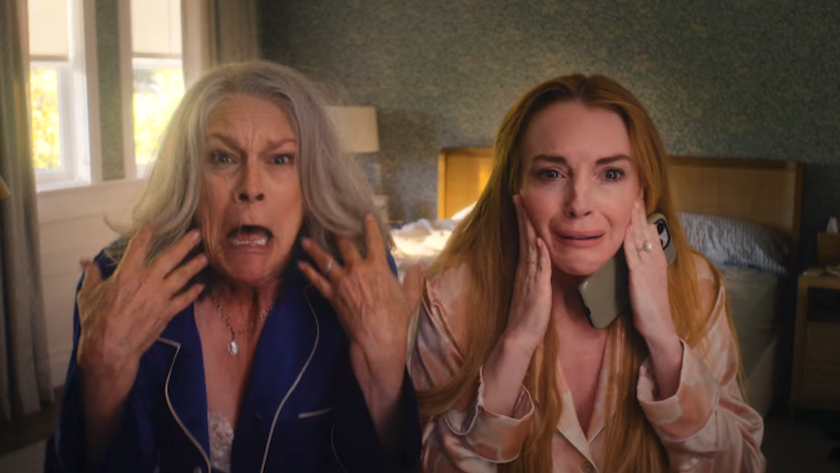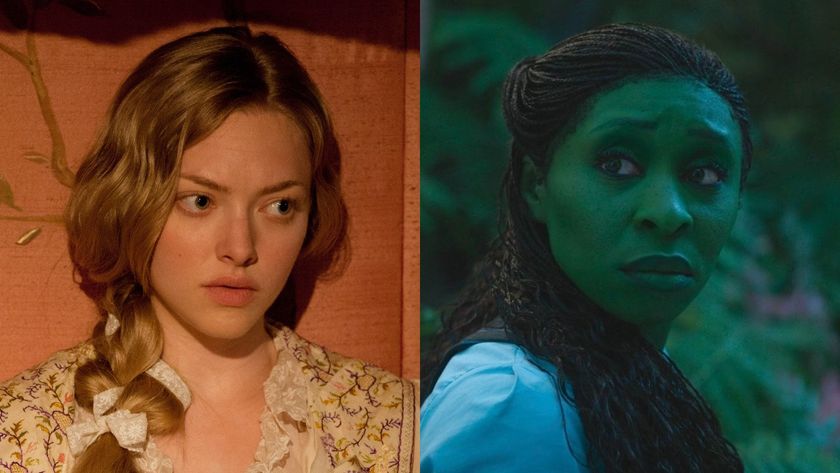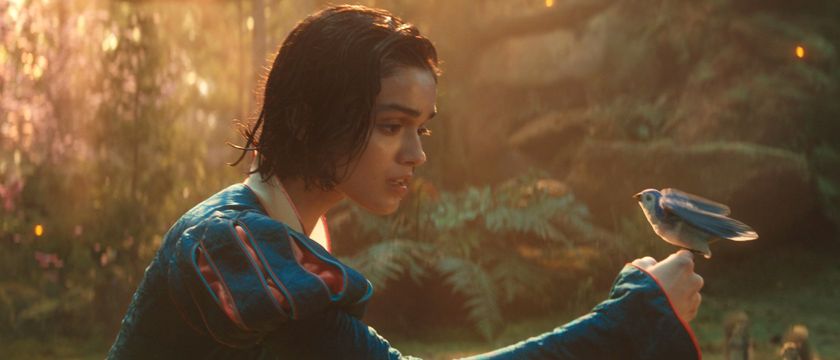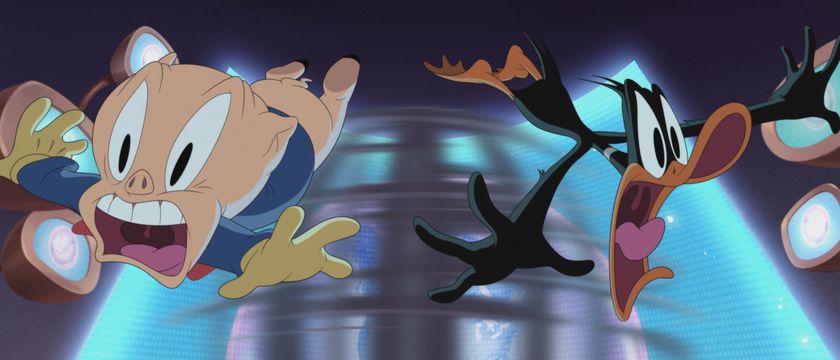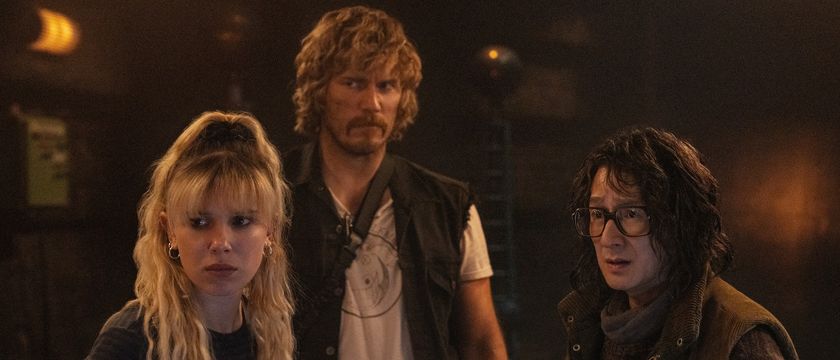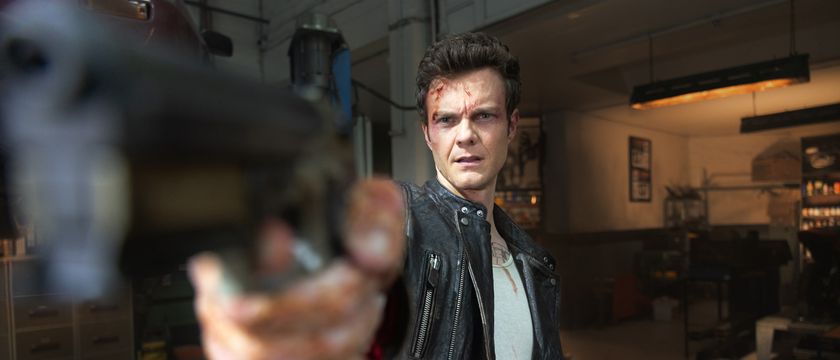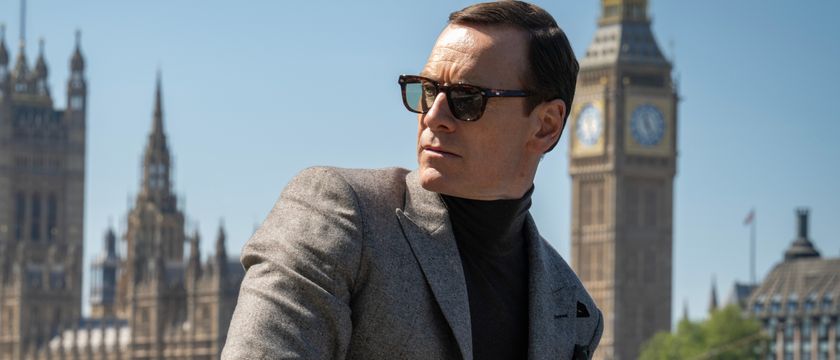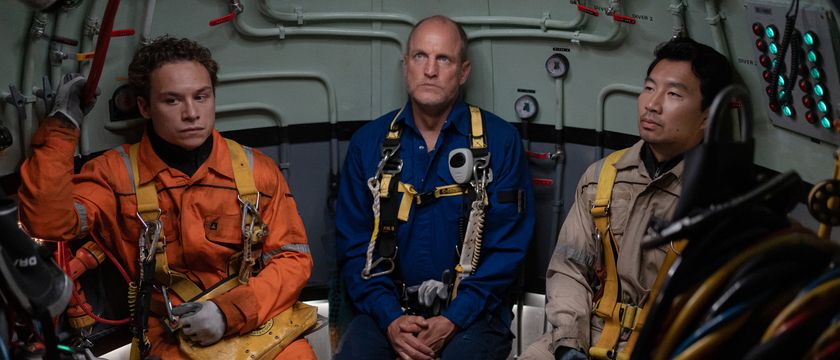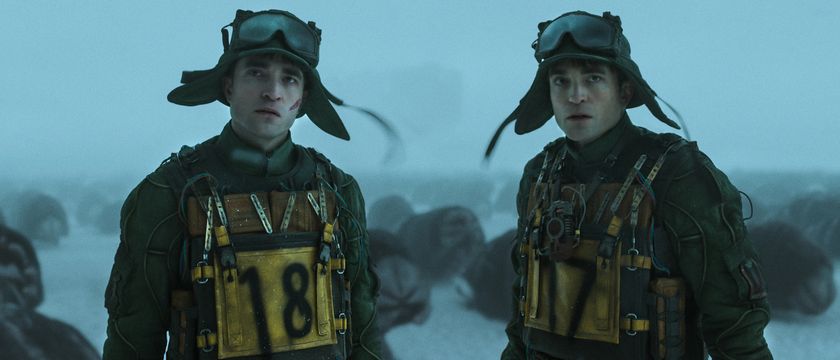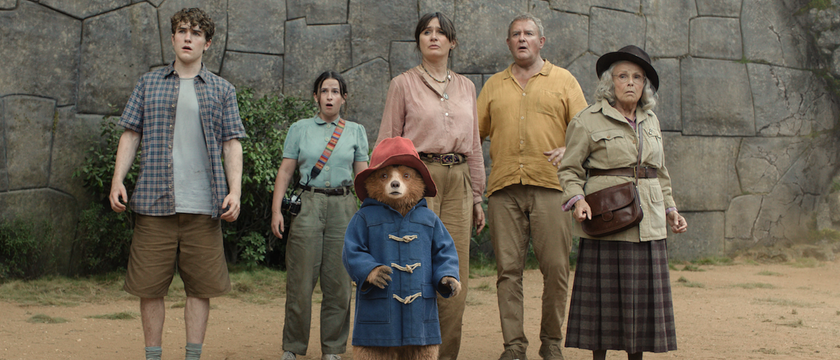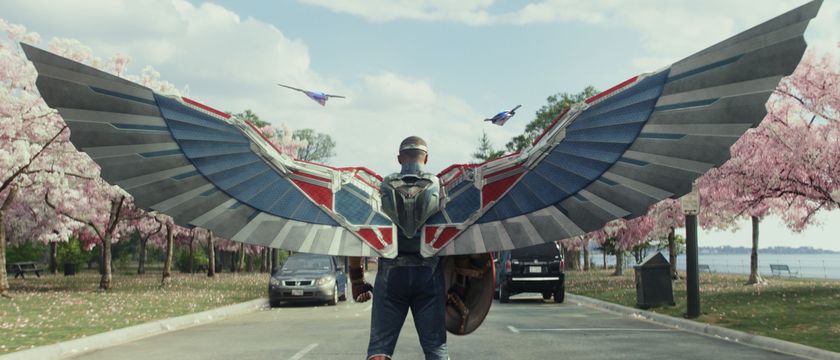Every futuristic, dystopic sci-fi movie winds up struggling with the same hypocrisy. 1: "In this future, the robots/aliens/borgs have taken over and snuffed out humanity. 2: "I, the director, am way more interested in the glitzy robot tech than the actual people involved." Everything from the glorious Minority Report to last year's dreadful Total Recall remake walk a fine line between creating an impressive dystopic future world and falling in love with it; nearly all of these movies end with our heroes rejecting the sleek new technology in favor of a rougher, more human life, even if we've spent the entire film being dazzled by the future we're supposed to fear.
In Tron: Legacy and now Oblivion, architect-turned-director Joseph Kosinski has crafted immaculate sci-fi worlds that he seems to love far more than the characters that inhabit them. The images he gives us early on in Oblivion are breathtaking, from the gleaming glass space tower where Tom Cruise's Jack and Andrea Riseborough's Victoria live to the desiccated husks of landmarks back on Earth (the New York Public Library barely visible under sand dunes, the spire of the Empire State Building looking over newly formed mountains). Set a bit more than 70 years in the future, after an alien species has destroyed the moon and killed nearly all of humanity, Oblivion gives us a portrait of the future that's bleak and haunting and instantly intriguing, put together with the kind of attention to detail that so much recent sci-fi ignores.
And for a while the movie is what you imagine Kosinski largely wanted it to be: a tour of this world he has created. Jack is a futuristic blue-collar guy, a repairman for the spherical drones that prowl the Earth to eradicate the last of the alien colonizers (the remains of humanity have moved to a big triangular spaceship in orbit or to peaceful lives on one of Saturn's moons). Victoria guides Jack from the control tower while he gets his hands dirty, and at night the two of them watch some spectacular cloud sunsets, take sultry dips in the pool, and wear sharp gray and white clothes that match their modernist digs perfectly. They're supposed to head off to join the rest of humanity in just 2 weeks, as promised by their fearless leader Sally (Melissa Leo, with a criminal Southern-fried accent), but it's not just Jack's secret longing for life on Earth that will get in their way.
A mysterious woman (Olga Kurylenko) crash lands on Earth in what looks like a NASA space craft sent out before the alien invasion. A group that Jack believes to be aliens are actually humans, led by Morgan Freeman in some steampunk goggles (though he's featured on every poster, Freeman's barely in the film, so don't get too used to him). Either conflict would be enough to propel Jack's story forward, but Oblivion awkwardly hangs on to both, dropping Freeman and his band of rebels out of the story for long periods, fostering a weird rivalry between Kurylenko and Riseborough, and then dropping in a series of twists in no particular order, changing Jack's purpose so many times it's difficult to keep track. Then again, if you're a sci-fi fan many of them will feel so familiar that it might not be a challenge at all. Oblivion may look fantastic and unique, but the story that actually drives it is infuriatingly derivative.
Cruise is in his Top Gun sweet spot as a pilot bent on breaking the rules and learning the truth, but he's less comfortable at the center of the flimsy love triangle, even though Kurylenko brings some genuine soulfulness to a badly underbaked role. Riseborough is initially fascinating as the steely and rule-abiding Victoria, but she too falls victim to a third act that moves too fast to twist itself into the requisite knots. And though Freeman's role is small but momentous, both Nijolaj Coster-Waldau and Zoe Bell are mystifyingly underused as fellow resistance fighters (Bell, also a stuntwoman, has zero lines and only one notable stunt). Kosinski first mapped out the story for Oblivion in a graphic novel, and even at longer than two hours it's too much story for this film to handle-- especially when the director seems to care more about the looks than the narrative anyway.
Large-scale, original sci-fi is a hard thing to come by these days, and despite its familiar story Oblivion does dream up some great ideas, like the bubble helicopter that Cruise flies over the Earth and the terrestrial havoc that would result from the moon's destruction. But as good as Kosinski is at dreaming up this world, he still makes you wonder what it would be like to visit this place under the guidance of someone who actually knew how to have fun with it.
Staff Writer at CinemaBlend


